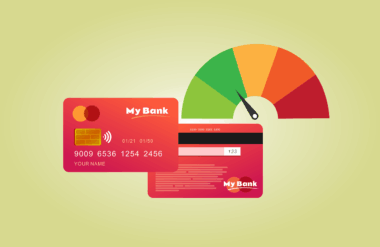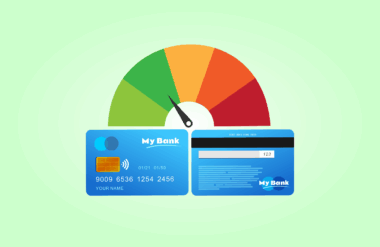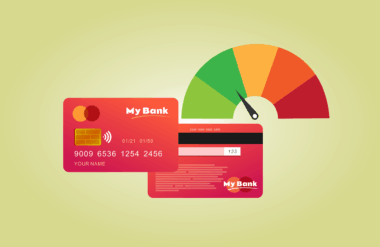Utilizing Financial Apps to Help Track Credit Improvement
In today’s financial landscape, maintaining a good credit score is crucial for better loan rates and opportunities. Financial applications play a significant role in tracking and improving your credit score effectively. Many users leverage these applications for insights into their credit habits and financial health. This is essential for spotting discrepancies in credit reports that could impact scores negatively. For instance, one app may alert you to missed payments, while another helps you monitor your credit utilization ratio. Identifying these critical elements allows users to take charge of their financial status proactively. Moreover, many financial applications offer tips on how to enhance credit scores, such as minimizing outstanding debts or disputing inaccurate entries in your credit report. With the right tools at hand, improving your credit score becomes a manageable challenge. Regular usage of these applications can foster a stronger understanding of credit factors, ultimately leading to better financial decisions. It’s an ongoing journey that pays off, affirming the importance of personalized financial management via technology.
Another significant advantage of utilizing financial apps is their ability to provide actionable insights in real time. Many platforms allow users to set budgets and track spending throughout the month, which helps in managing finances better. Establishing a budget can guide spending towards essential needs and reconciling unnecessary expenditures that could harm a credit score. Moreover, apps offer reminders for upcoming bills, ensuring that you do not miss payments that are vital for maintaining a good credit rating. Missing payments not only leads to late fees but can also damage your credit score significantly. Furthermore, some applications enable users to track changes in their credit scores over time, providing a comprehensive view of improvements. The visual displays show how efforts in managing debts and expenses contribute to overall scores. Many users find motivation in tracking this progress through graphs and achievements, creating a gamified experience in financial management. Therefore, choosing the right financial app can transform how one interacts with their financial journey, allowing for greater efficiency and awareness.
When selecting a financial app to assist with credit score tracking, it’s essential to evaluate intended features and usability. Some applications focus solely on credit scores, while others provide a suite of financial tools for comprehensive management. Users should consider which features are most relevant to their personal financial goals. For example, apps that provide credit monitoring alerts can be beneficial for those wanting to catch potential fraud early. Others may offer recommendations for credit card selection based on spending habits. Additionally, security features are crucial; look for apps with robust data encryption and privacy policies to protect sensitive information. Read reviews and do thorough research to ensure you are choosing a reputable application. Many applications are free, while others may offer premium features at a subscription cost. Weighing the benefits against the associated costs will help users find the perfect fit. Ultimately, the right application can lead to smarter financial decisions and significant improvements in credit health over time.
Engagement and Motivation in Credit Improvement
Incorporating gamification elements is a growing trend among financial apps that track credit scores. Gamification provides users with a more engaging way to monitor their financial progress, fostering motivation to improve credit habits. Features such as badges, points, and rewards for meeting financial goals encourage users to stay committed to their credit improvement journey. Users often find that these elements make tracking progress feel less daunting and more enjoyable. The social aspect of many financial applications also allows users to connect with friends or family, sharing tips and experiences in improving their credit scores together. This community support encourages accountability, pushing users to strive for better financial health. Additionally, educational resources available within the apps offer valuable information about credit scores, such as how to read them, what factors influence them, and the best strategies for recovery. Thus, the overall interactive experience received from financial apps transforms credit score monitoring into an active rather than passive undertaking.
Users can also benefit greatly from the budgeting features offered by financial apps, which support overall credit improvement. Effective budgeting plays a pivotal role in managing financial health, directly correlating to credit scores. By setting achievable financial goals, users can allocate funds appropriately, avoiding overspending and the subsequent dangers of debt accumulation. For instance, many apps allow users to visualize where their money is going and identify areas where adjustments can be made. This foresight can prevent late payments and help maintain a lower credit utilization ratio, both of which are pivotal for a healthy credit score. Furthermore, budgeting can also uncover unnecessary expenses that drain resources without adding value to users’ lives. By identifying these areas, individuals can make more informed choices on their spending habits. Advanced financial applications even provide projections on how proposed changes in spending can influence credit scores over time. Through consistent engagement with budgeting features, users will cultivate wiser money habits, assisting in their rehabilitation of credit scores.
A comprehensive credit report is vital in assessing areas needing improvement, and financial apps often emphasize this importance. By providing users access to their credit reports, these applications empower individuals to check the accuracy of their financial histories. Understanding what factors are negatively impacting one’s credit score becomes easier, allowing users to target specific areas for improvement, such as outstanding debts or recent late payments. Financial applications often include features for disputing errors in credit reports, facilitating communication with creditors. This automated assistance can streamline what is typically a tedious process for obtaining and verifying credit report details. Many apps provide tailored recommendations based on the credit report’s content, helping users develop personalized strategies for improvement. Maintaining a proactive posture regarding credit monitoring and corrections is imperative and can yield significant benefits in increasing credit ratings over time. Overall, by integrating comprehensive reports into their services, financial apps enhance users’ understanding and management of their credit scores, serving as invaluable tools for recovery.
Leveraging Technology for Long-Term Benefits
For individuals committed to improving their credit scores, incorporating technology into their financial strategies can make a marked difference. Regularly engaging with financial apps provides continued insights into spending behaviors and credit utilization rates. This engagement leads to beneficial habits that can persist long after reaching short-term financial goals. Updating financial habits can create significant shifts in credit scores over time. Furthermore, taking advantage of in-app learning modules or available resources enhances user knowledge about credit management. Many apps continuously update their features based on user feedback, ensuring that they remain relevant and user-friendly. As financial literacy becomes an integral part of financial health, consistency in utilizing credit-focused applications facilitates ongoing education in personal finance. Changing one’s perspective on finances to be less reactive and more proactive becomes achievable with diligent use of these tools. In this regard, technology becomes an ally in the journey towards not only improving credit scores but also cultivating lifelong financial security.
The future of credit score management is undoubtedly tied to technology advancements. With the rapid evolution in financial app development, users can expect more intuitive features and enhanced user experiences tailored to individual needs. New tools may emerge that address issues we haven’t yet identified and allow for unprecedented wealth management opportunities. Implementing machine learning algorithms can lead to predictive analysis aimed at foreseeing financial challenges before they arise. As the demand for effective credit score improvement strategies continues expanding, more financial institutions are likely to invest in app development as a method to enhance customer engagement and support. Knowing the credit landscape is changing emphasizes the importance of being adaptable and seeking out innovative solutions. By embracing financial technology and integrating it into credit management processes, individuals will be better equipped to navigate their financial futures. Therefore, regardless of your current credit status, taking concrete steps today using financial apps can lead to impactful changes in your financial wellbeing and resultant credit scores.





